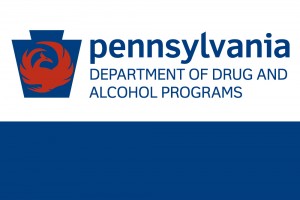The IOP/PHP Rollout Sessions have been rescheduled for the first week of November. Providers should see the schedule (also found on our website) for specific dates, times, links, and call-in details to join the meeting. Participants are highly encouraged to engage in the webinar by Skype rather than by phone in order to access the video portion of the presentation. Detailed information will be shared by video that will be advantageous to participants.
Jack Phillips
DDAP Announces Virtual Training Opportunities
Human Trafficking
Wednesday, October 14 from 10:30 am – 12:30 pm
Objectives:
- Identify the signs that a client has been trafficked and determine a proper treatment plan
- Create the appropriate therapeutic environment to enable the best clinical outcomes for a trafficking survivor
- Differentiate among the various types of trafficking, including: sex trafficking, labor trafficking, child soldiers and organ donation to better inform clinical assessment and treatment interventions
Family Therapy in Addiction
Thursday, October 15 from 11 am – 12 pm
Objectives:
- To understand why family members who have a loved one with addiction need to find support for themselves first
- To learn how family members can connect to support for themselves
- To provide a different perspective of addiction from the lens of a family member who has a loved one struggling with addiction
Tobacco & Nicotine Treatment Options
Thursday, October 22 from 10 am – 11 pm
Course Goals:
- Understand the health risks related to tobacco/nicotine use through the lens of substance use disorder & behavioral health
- Understand tobacco/nicotine recovery treatment options, billing and coding
- Reduce health and cost burdens for substance use disorder providers and patients
- Foster a culture of tobacco/nicotine treatment in the substance use recovery community
- Cultivate tobacco/nicotine treatment professionals and champions
Understanding the family disease of addiction
Tuesday, October 27 from 11 am – 12 pm
Participants will be able to:
- Explain the impact of substance abuse on a family system
- Identify survival roles in the family and their function
- Identify survival rules in the family and their impact on the family
- Explain family triggers
- Explain PAWS and impact on recovery
HRSA Announces Additional Provider Relief Funds Available
Dear Stakeholder,
Thank you for your interest in the Provider Relief Fund as administered by the US Dept. of Health and Human Services (HHS) via the Health Resources and Services Administration (HRSA). As you may be aware, HHS recently made $20 billion in new funding available for a Phase 3 General Distribution allocation, and the Provider Relief Fund would like your help to reach as many providers as possible. More information about this distribution can be found in our press release, and by registering for our webcast on October 15 at 3 p.m. ET.
We have created a stakeholder toolkit so interested parties can easily share this funding opportunity with their networks nationwide. In this toolkit, you will find newsletter and email content, social media posts and images, information about next week’s webinar, and also helpful resources for applicants.
For more information, visit the following website: https://www.hhs.gov/coronavirus/cares-act-provider-relief-fund/general-information/stakeholder-toolkit/index.html.
Thank you for sharing,
Provider Relief Fund Team
How Wolf Administration Is Protecting Individuals with Disabilities and Other Vulnerable Populations From COVID
FOR IMMEDIATE RELEASE
October 8, 2020
Harrisburg, PA – Department of Human Services (DHS) Secretary Teresa Miller today discussed the measures Pennsylvania is taking to protect individuals with autism, intellectual and physical disabilities and older Pennsylvanians as the COVID-19 crisis continues. She also urged Pennsylvanians to continue to diligently follow public-health guidance in order to protect vulnerable Pennsylvanians who may be more at risk of complications if they develop COVID-19.
“We know that COVID-19 is an especially serious threat and can jeopardize the health of individuals with disabilities, so protecting our most vulnerable neighbors is a collective effort,” said Secretary Miller. “DHS has been doing everything in our power to ensure that the supports that we provide continue uninterrupted. But as we begin to enter winter and flu season alongside an ever-changing public health crisis, I want to reiterate that our continued success in the fight against COVID-19 relies on each of us doing all we can, such as wearing a mask and practicing social distancing, to protect those we know and those we don’t.”
Samantha Dorm, a York County mother whose 19-year-old son Michael Graff is recovering from COVID-19, echoed Secretary Miller’s call for the public to consider the effect their actions can have on vulnerable individuals. Michael has Down syndrome and autism.
“Protecting vulnerable people like my son is a responsibility that each of us carries. If nothing else, the COVID-19 crisis has made it clear that we are all truly connected and dependent on one another. But when people are unwilling to be flexible and make inconvenient changes to their lives – like wearing a mask at the grocery store or avoiding large gatherings – it can cost lives, though it may not be their own,” Dorm said. “The only way we can mitigate the long-term impact of the virus on people with intellectual and developmental disabilities is to embrace the concept of shared responsibility and coordinated action. We are all in this together.”
DHS administers Pennsylvania’s Medicaid program, which helps more than 3 million Pennsylvanians access health care. About 17 percent – or roughly 480,000 people – are individuals with disabilities. These Pennsylvanians access health care and other assistive services primarily through DHS’ Office of Developmental Programs (ODP) and the Office of Long-Term Living (OLTL).
Office of Developmental Programs
ODP supports more than 56,000 individuals with an intellectual disability, developmental disability, or autism — a population that is particularly high risk for contracting COVID-19. ODP is responsible for regulating more than 7,500 licensed settings across the commonwealth.
ODP has adjusted policies to ensure continuity of services during the health crisis and has received flexibilities from the Center for Medicare and Medicaid Services (CMS) to allow for:
- Expanding services that relatives can provide,
- Expanding services that can be offered remotely, and
- Expanded settings where services can be provided to ensure adequate quarantine and isolation space when needed.
DHS has also worked with the Pennsylvania Department of Aging to develop and provide extensive guidance and technical assistance to our providers of community participation supports or ‘day programs’ in order to re-open these facilities. This has allowed for thousands of people to return to services during the day and provides them with enriching activities aimed at promoting health and wellness.
Office of Long-Term Living
OLTL supports individuals with physical disabilities and older adults many who are dually eligible for Medicare and Medicaid with their long-term care needs. This includes more than 371,000 Pennsylvanians who receive long-term services and supports through the Community HealthChoices program and more than 65,000 Pennsylvanians who live in more than 1,200 personal care homes and assisted living residences regulated and licensed by OLTL.
OLTL has ensured that no participant is to be disenrolled from Medicaid, even if they have not completed their eligibility redetermination application. OLTL continues to work with managed care organizations (MCOs) to ensure all necessary services are in place.
It has also received flexibilities from CMS to allow for:
- Personal protective equipment to be added to a person’s service plan,
- Services such as counseling or cognitive rehabilitation therapy to be provided virtually, and
- MCOs to assess clients either telephonically or in person.
OLTL has also adhered to the Department of Aging’s reopening guidance for adult day care centers and the LIFE program. As adult day service providers begin to reopen in parts of the state, participants are given the choice to attend these programs or receive services in their homes.
As flu season approaches, DHS is reminding all Pennsylvanians to get flu shots, especially given the additional risk of COVID-19. DHS will continue to follow guidance coming from the Centers for Disease Control and Prevention (CDC) and the Pennsylvania Department of Health to ensure the continuity of care and protections for the communities it serves.
Secretary Miller acknowledged October as National Disability Employment Awareness Month (NDEAM), which reinforces the value and talent that people with disabilities add to workplaces and communities and affirms Pennsylvania’s commitment to being an inclusive community. Pennsylvanians with disabilities who are interested in employment should connect with the Department of Labor & Industry’s Office of Vocational Rehabilitation or visit ODP’s www.myodp.org and click “Resources” and select “Employment” for various resources. DHS’ employment services are still available to assist people who are working or seeking work, and many of these services can be provided remotely.
“As the economy recovers, it is absolutely critical to ensure that people with disabilities are able take part in that recovery. Workplaces should examine their policies to see which ones are outdated or intentionally or unintentionally excluding individuals with disabilities. They should also actively develop and promote specific employment opportunities for people with disabilities,” said Secretary Miller.
For more information visit www.dhs.pa.gov.
MEDIA CONTACT: Erin James, [email protected]
# # #
DDAP Announces ASAM Alignment Resources Available
DDAP is pleased to announce the availability of new ASAM Alignment resources on the DDAP website.
- Level 4.0 Medically Managed Intensive Inpatient PowerPoint slides
- Level 4.0 Medically Managed Intensive Inpatient recorded presentation
10/6 D&A Committee Meeting Follow-up: DDAP Trainings
SUPPORT Act Medicaid MAT Services and Drugs Mandatory Coverage Starting Oct 1
CMS wants to remind states that effective October 1, 2020, state Medicaid programs are required to provide coverage of Medication Assisted Treatment (MAT) services and drugs under a new mandatory benefit. The SUPPORT Act of 2018 (P.L. 115-271) amended the Social Security Act (the Act) to add this new mandatory benefit. The purpose of the new mandatory MAT benefit found at section 1905(a)(29) of the Act is to increase access to evidenced-based treatment for Opioid Use Disorder (OUD) for all Medicaid beneficiaries and to allow patients to seek the best course of treatment and particular medications that may not have been previously covered.
CMS interprets sections 1905(a)(29) and 1905(ee) of the Act to require that, as of October 1, 2020, states must include as part of the new MAT mandatory benefit all forms of drugs and biologicals that the Food and Drug Administration (FDA) has approved or licensed for MAT to treat OUD. More specifically, under the new mandatory MAT benefit, states are required to cover such FDA approved or licensed drugs and biologicals used for indications for MAT to treat OUD. States currently cover many of these MAT drugs and biologicals (for all medically-accepted indications) under the optional benefit for prescribed drugs described at section 1905(a)(12) of the Act.
The President has signed H.R. 8337, the Continuing Appropriations Act, 2021 and Other Extensions Act. This new law made a statutory change to Section 1905(a)(29) and 1905(ee) of the Act, and now clarifies that MAT drugs when used for OUD as described under the mandatory benefit are deemed prescribed drugs, and covered outpatient drugs subject to section 1927 of the Act requirements, as appropriate.
Specifically, these amendments to the Act ensure a state’s ability to seek section 1927 drug manufacturer rebates, and apply drug utilization management mechanisms, such as preferred drug lists and prior approval, and a manufacturer’s duty to pay appropriate rebates and comply with all applicable manufacturer drug product and drug pricing reporting and payment of rebates. The change in law is effective as of the date of enactment of the original SUPPORT Act, which was October 24, 2018. Further CMS guidance will be forthcoming on other implementation issues relating to this new mandatory MAT benefit.
View in web browser: https://content.govdelivery.com/accounts/USCMSMEDICAID/bulletins/2a3b044
DDAP Secretary Jennifer Smith Asks Providers for Information
Today at RCPA’s quarterly Drug and Alcohol Committee meeting, Secretary Smith informed our members that she has been asked by the Federal government to reach out to providers to determine whether providers have received Federal funds in Phase 1 or Phase 2 of the CARES Act Provider Relief Fund, and if providers have not received funds to find out whether providers applied or whether their applications were denied.
If you have not received funds in either Phase 1 or Phase 2, please send Jack Phillips an email as to when you applied for these funds and if you were denied or are still waiting for an answer on your application.
As a reminder, you may apply for Phase 3 of the Provider Relief Funds. The application deadline for Phase 3 funding is Friday, November 6. Questions, please contact Jack Phillips.
DDAP Announces New ASAM Alignment Documents Available
DDAP is pleased to announce documents for ASAM Alignment of Level 4 Medically Managed Intensive Inpatient have been posted to our website.

















